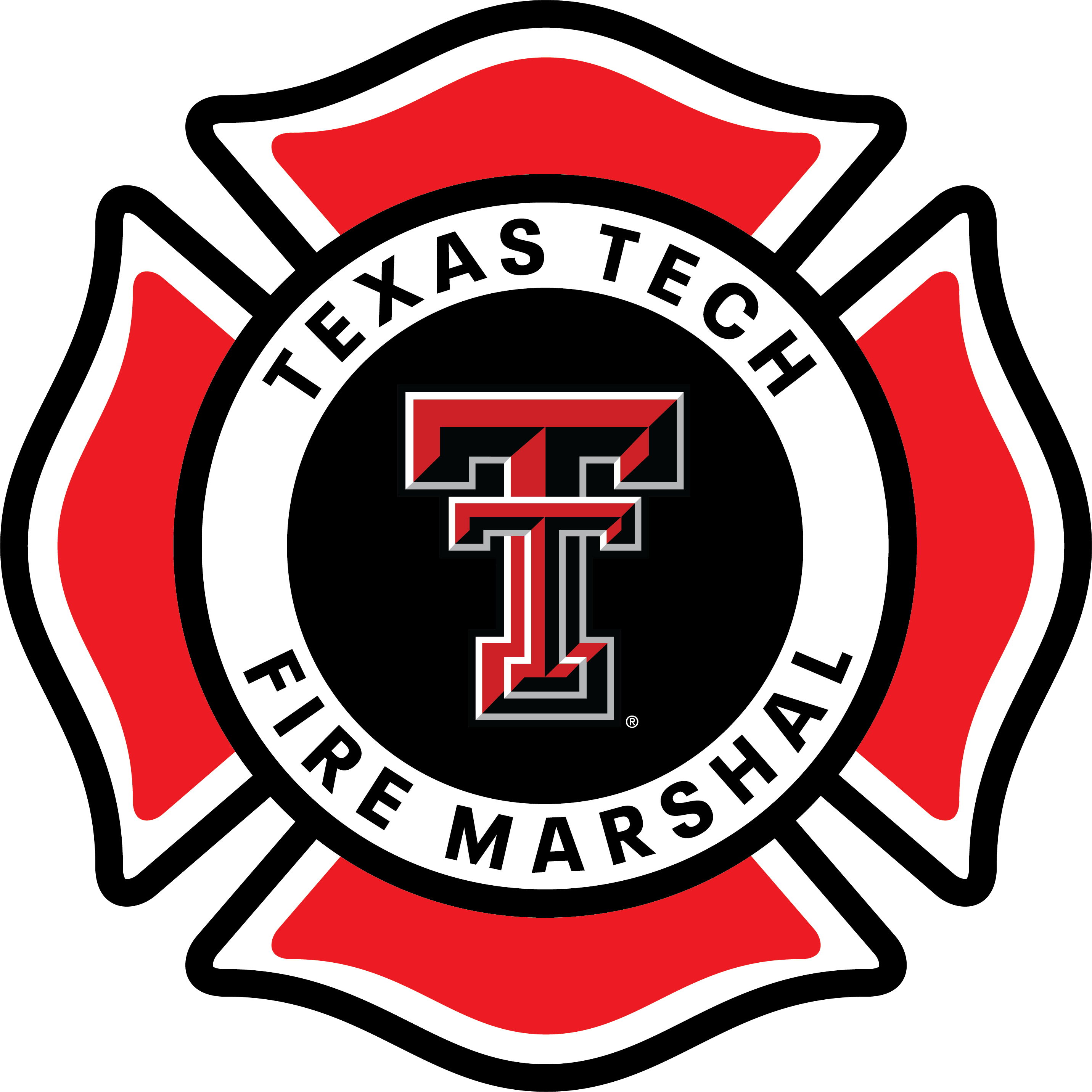FAQ
Why does the fire alarm in my Residence Hall go off so much?
The leading cause of fire alarms in Texas Tech Residence Halls are smoking/vaping and unsupervised cooking. Cooking with unauthorized appliances, like hot plates and air fryers that produce smoke, are also a leading cause. You can do your part to prevent nuisance fire alarms by stopping unsafe cooking practices and smoking/vaping inside Residence Halls.
If I know it is a false alarm, why can’t I just stay in my room or office?
Why is our Fire Alarm Panel beeping constantly?
Can I get in trouble for setting off the fire alarm?
Intentionally or maliciously activating a fire alarm when there is no emergency on campus is a crime and felony offense in the state of Texas. Pulling a fire alarm as a prank, tampering with fire safety equipment, or triggering an alarm system on purpose without cause can result in university disciplinary action and/or criminal prosecution under state law.
However, things like burnt food, steam from a shower or dust from cleaning can unintentionally trigger a fire alarm. We encourage mindfulness in preventing false alarms but do understand incidents like those listed occasionally happen. When they truly are accidental, they are not grounds for disciplinary or legal action.
If the fire sprinkler system deploys, will it deploy throughout the entire building?
Despite inaccurate portrayals in TV and movies, most modern fire sprinkler systems are designed to operate individually. Each sprinkler head activates only when the heat in its immediate area reaches a specifictemperature. This is typically triggered by a small glass bulb that breaks or a metal link that melts when exposed to heat, releasing water directly over the fire source. This targeted response helps contain and control the fire while minimizing water damage to the rest of the building. While specialized systems that activate multiple sprinkler heads at once do exist, they are generally found only in high-hazard industrial settings.
Can I hang things on the fire sprinkler head?
Why can’t I prop open my dorm room door?
How do you use a fire extinguisher?

Is TTUFMO a fire department? Or are you firefighters?
If there is a fire, who should I call?
Call 911 immediately! Notify other people in the building by shouting and pulling the fire alarm pull station on your way out, this will set off the fire alarm and alert other occupants of the danger. When first responders arrive, let them know you called and why you did. This can help speed up the response and get things back to normal faster. If you genuinely believe there is an emergency, you will not be penalized for calling 911. Your safety is the priority, and timely action is essential. If there has been a fire, it has been extinguished and our office has not yet responded to the scene, please contact our office so we may document and investigate the incident.
What common items are not allowed in university buildings?
Common items including, but not limited to, candles, flame-lit incense, air fryers, hot plates, grills, e-scooters, e-bikes, e-skateboards and pyrotechnics of any kind are prohibited inside all Texas Tech buildings.
Are fireworks allowed on campus?
However, fireworks and pyrotechnic displays may be permitted only for Texas Tech University-sanctioned events, provided they are operated by a licensed and insured individual or company and a permit has been obtained through TTUFMO prior to the event(s).
Are space heaters allowed on campus?
TTUFMO does not encourage the use of space heaters, but they are allowed in Texas Tech facilities under certain conditions. Any space heater used on campus must meet the following requirements:
- Have a UL listing or equivalent safety certification
- Be equipped with a tip-over safety switch
- Preferably be infrared style
Please note:
- Older, ceramic-style heaters are prohibited
- Oil-filled, kerosene, propane and other heaters using flammable or combustible fuels are prohibited
Due to the wide variety of models and potential safety concerns, we ask that you contact our office before using a space heater in any facility.
Is it OK to store things in corridors or stairwells?
What do I do if I notice damaged fire safety equipment, like a damaged fire extinguisher?
Are cold spark machines or sparklers considered fireworks, and can I use them at my event?
Both cold spark machines and sparklers are considered pyrotechnic devices and fall under the same regulations as traditional fireworks- they are strictly prohibited on Texas Tech property unless the display is part of a TTU-sanctioned event, operated by a properly licensed and insured pyrotechnic professional, and conducted under a valid permit issued by the Texas Tech University Fire Marshal’s Office (TTUFMO). While cold spark machines and sparklers may appear safer, they contain substances that burn at extremely high temperatures and can easily ignite nearby materials and are therefore prohibited.
Texas Tech Fire Marshal
-
Address
413 Flint Ave., Lubbock, Texas 79409 -
Phone
806-742-0146 -
Email
fire.safety@ttu.edu

